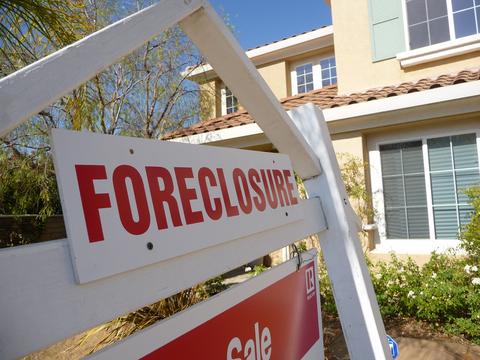
Austin Business Journal reports, "property foreclosures in the Austin metro climbed in 2023 — tracking a rise in local unemployment — but were relatively low by historic standards.
Foreclosures, which are legal proceedings by mortgage lenders to seize property when borrowers are in default, numbered 1,438 in the area last year, up 389 from 2022, according to Attom Data Solutions, a real estate information company.
Despite what equates to a 37% increase, however, the figure is below the levels immediately prior to the Covid-19 pandemic and well under those seen more than a decade ago on the heels of the last recession.
Foreclosures were up across the state and nation last year. They rose 51% in the Houston metro compared to 2022, 19% in the Dallas-Fort Worth metro and almost 12% in the San Antonio area, according to Attom Data. Nationwide, the number of foreclosures was up 9%.
Austin-area real estate observers said the local trend bears watching but is most likely the result of individual borrower circumstances rather than an early sign of a systemic economic issue. While the region's real estate market clearly has slowed from its once red-hot pace, homes in the Austin metro still were selling for an average 97% of listing price last fall, while the inventory of homes for sale finished the year at a paltry three-months supply. Six months is considered by many housing experts to be a healthy balance of supply and demand.
“We had a bunch of people move here and pay absolutely top-dollar for housing in and around the pandemic,” said Jon Hockenyos, president of Austin-based economic analysis firm TXP Inc. “Some of them probably overextended and bet the wrong way on variable interest financing,” meaning their mortgage payments went up last year along with rising interest rates.
But Hockenyos called the local housing market healthy overall, saying prices in the Austin area show no signs of collapsing — even though they have retrenched somewhat — and buyers prior to the last few years have built up significant home equity on average. He also noted that the number of foreclosures in the area last year was “an order of magnitude less” than the region’s historic highs, despite the big percentage increase from 2022.
The figures from Attom Data back up that view, with 1,657 foreclosures in the Austin metro in 2019 just prior to the pandemic and nearly 10,000 in 2010 after the last recession. The company's figures are predominantly residential foreclosures, although it said commercial foreclosures are included in its reports but number very few and aren’t broken out.
Mark Sprague, state director of information capital at Independence Title in Austin, said a certain level of foreclosures are always occurring in an economy — driven by individual circumstances such as job loss, divorce or sickness — that can hurt people's finances and prevent them from keeping up with payments
That most likely accounts for the 2023 increase locally, Sprague said, citing a rise in layoffs in the Austin metro last year.
According to the Federal Reserve Bank of Dallas, the Austin area unemployment rate registered 3.6% in December, below both the U.S. jobless rate of 3.7% and the statewide rate of 4% but still higher than its 2.8% level in December 2022.
The rise in local foreclosures last year "is not nothing — it is catastrophic for everybody that goes through a foreclosure," Sprague said. "But it's not an issue in (Austin's real estate) market in general."
The region is still creating jobs at a solid clip, he said, so "if you can't afford (your house), someone else comes along. I don’t see foreclosures picking up (significantly) because of the amount of jobs in the pipeline."
For its part, Attom Data called the overall rise in U.S. foreclosures last year "a market correction rather than a cause for alarm."
The trend "signals a return to more traditional patterns after years of volatility," the company said in a statement. It "suggests that while foreclosure activity may fluctuate, it’s unlikely to approach the highs seen in the last decade. Instead, we foresee a market that is more reflective of broader economic trends, with foreclosure filings becoming a more predictable aspect of the housing landscape."
Source: Austin Business Journal
Written by: Bob Sechler
Published: January 22, 2024
Posted by Grossman & Jones Group on
Leave A Comment